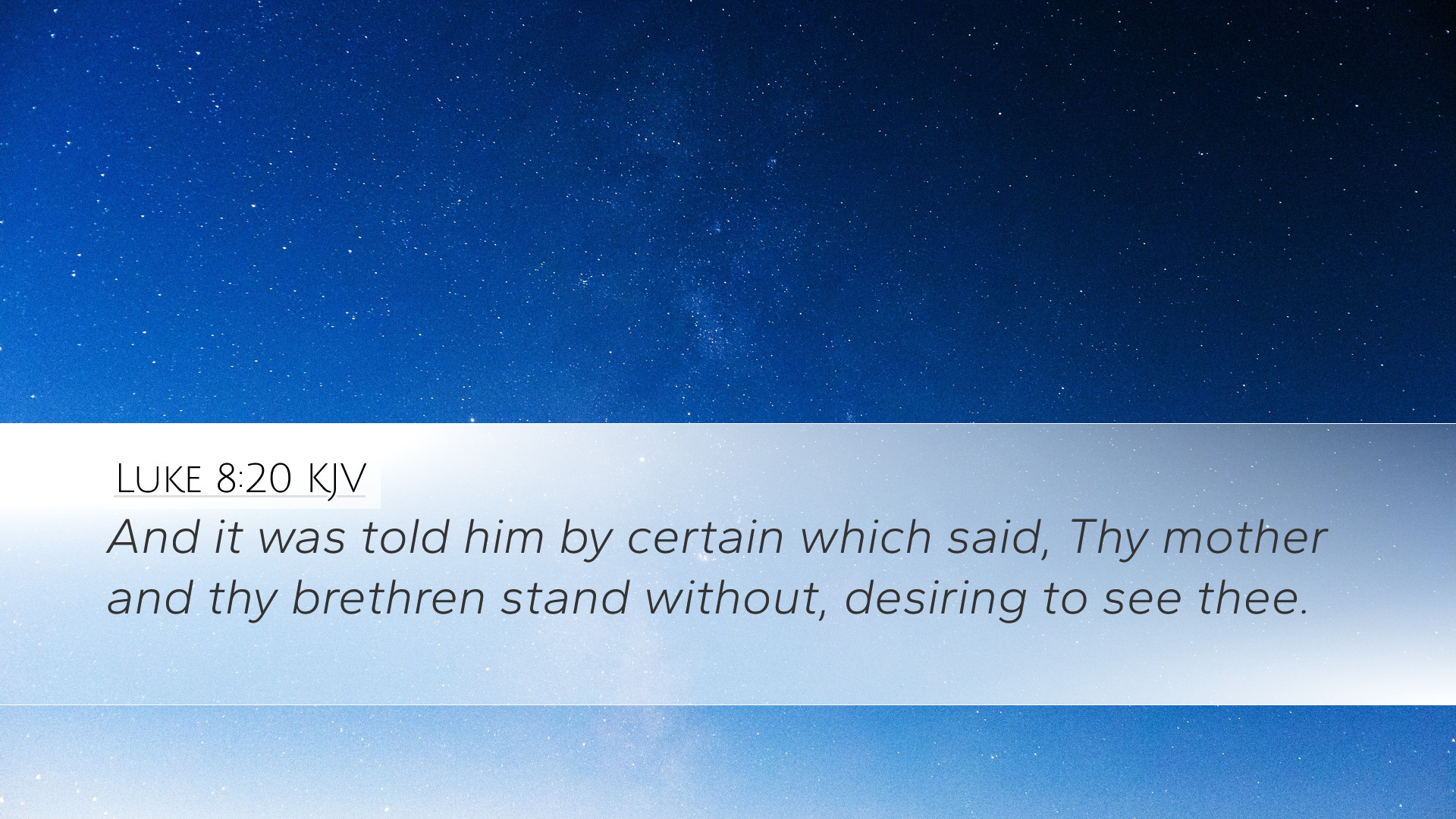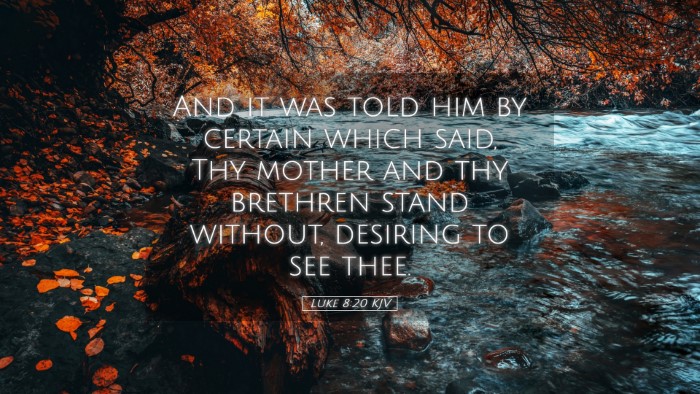Commentary on Luke 8:20
Introduction:
Luke 8:20 states, "And it was told him by certain which said, Thy mother and thy brethren stand without, desiring to see thee." This passage captures a moment in the life of Jesus, illustrating the intricate relationship between His earthly family and His spiritual mission. The verse invites an exploration of familial ties and the nature of discipleship.
Contextual Background
The Gospel of Luke is known for its emphasis on marginalized individuals and the inclusivity of Jesus' ministry. In this narrative, Jesus had already begun His ministry, teaching, healing, and performing miracles. His growing popularity meant that His biological family, comprising His mother Mary and His brothers, attempted to reach Him amidst the crowds.
Analysis of Luke 8:20
Family Dynamics
This verse highlights the tension between Jesus' earthly family and His spiritual vocation. Matthew Henry notes that while Jesus honored His earthly responsibilities, He did not allow them to supersede His divine mission. This illustrates a crucial balance in Christian life - the need to honor familial relationships while prioritizing the call to follow Christ.
Spiritual Affinity over Blood Relations
Albert Barnes reflects on Jesus' response to the message about His mother and brothers. Jesus emphasizes, "My mother and my brethren are these which hear the word of God, and do it." This response suggests that spiritual kinship is of greater importance than biological ties. It draws attention to the community of believers as the true family in God's kingdom.
Implications for Discipleship
Adam Clarke points out that Christ's reference to "those who hear and do the word of God" fuses veracity of faith with action. Discipleship goes beyond mere acknowledgment; it requires a transformative response to the teachings of Christ. Clarke posits that those who actively engage with Scripture are welcomed into the familial bond with Jesus, transcending conventional family relationships.
Theological Reflections
Jesus’ Ministry and Human Relationships
This verse captivates the essence of the Christian understanding of relationships. Jesus invites His followers to redefine their relationships according to obedience to God's word. This reshaping of familial bonds in light of spiritual commitment is a pivotal theme in the New Testament, echoed in Matthew 10:36 and Mark 3:31-35.
The Role of the Church
The implications of Jesus’ words extend to the functioning of the Church. The concept of Christian fellowship is essential; it reflects a family united not by blood but by faith. The Church stands as a new family that invites believers to cultivate spiritual relationships that surpass traditional confines.
Practical Applications
- Prioritizing Spiritual Commitments: Believers are called to examine their priorities. While earthly relationships are significant, they should never overshadow commitment to God's word and community.
- Creating Inclusive Communities: The Church should strive to welcome everyone, crafting a community where all who follow the word of God find familial belonging.
- Encouraging Actionable Faith: As disciples, Christians are urged to embody their faith through actions consistent with God's teachings, exemplifying that listening to the word of God leads to transformation.
Conclusion
Luke 8:20 serves as a vital reminder of the calling to prioritize our relationship with Christ above all else, including our biological families. It challenges believers to view the Church as a vital family rooted in spiritual kinship. Pastors, students, theologians, and scholars can derive profound insights from this passage, encouraging ongoing reflection on the nature of discipleship and community in the context of the Christian faith.


